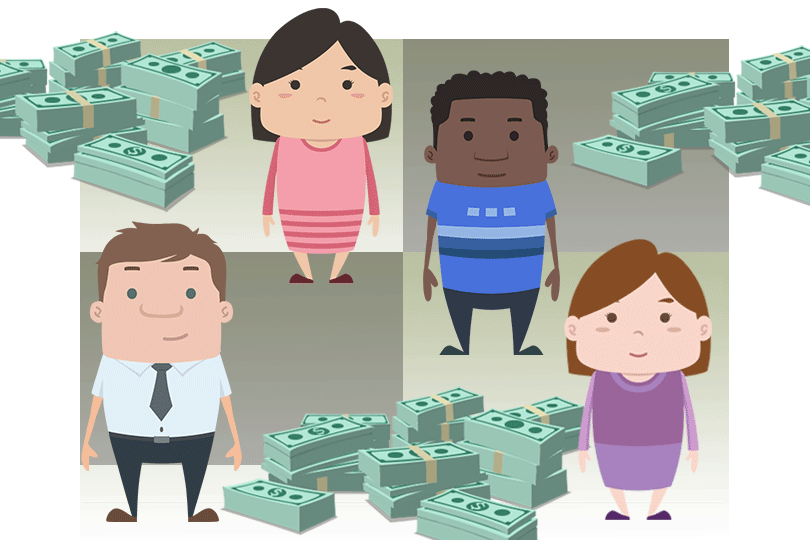When is the Right Time for an FHA Cash-Out Refinance?
December 5, 2024
One key rule is the "seasoning requirement." Think of it like a waiting period: you generally need to own your home for at least one year before you can apply for an FHA cash-out refinance. This allows you to demonstrate a stable ownership history and build some equity.
Of course, there are exceptions to every rule. Life throws curveballs, and situations like divorce or a sudden jump in your property value might shorten the waiting period. These are usually handled case-by-case, so be prepared to provide documentation to support your situation.
Connecting with an FHA-approved lender is always the best way to get the most accurate information. They can explain your situation's specific requirements and help you gather the necessary paperwork.
Building Equity: Your Home's Growing Value
Beyond meeting the FHA's requirements, it's smart to give your equity time to grow. Equity is like your ownership stake in your home—the bigger it is, the more financial freedom you have. It's calculated by taking your home's current market value and subtracting what you still owe on your mortgage.
Several factors contribute to your home equity increasing. For example, every time you make a mortgage payment, a portion chips away at your loan balance, increasing your ownership. Secondly, property values increase over time, especially in desirable neighborhoods.
This natural appreciation boosts your equity without you having to lift a finger.
Finally, strategic home improvements that add value to your property also play a role in growing your equity.
By waiting and allowing your equity to increase, you'll have access to more funds when you do a cash-out refinance. This gives you more financial flexibility and puts you in a stronger position to achieve your goals.
Why Pumping the Brakes Can Pay Off
While accessing quick cash might sound appealing, rushing into an FHA cash-out refinance soon after buying your home can have some downsides.
If you haven't built up enough equity, you might not be able to access as much cash as you need. This could make it harder to accomplish your goals, whether it's tackling those credit card balances or finally remodeling that outdated bathroom.
Remember those closing costs that come with buying a home? Well, they apply to refinancing too. Things like appraisal fees, loan origination fees, and title insurance can add up. Refinancing too quickly means paying these costs multiple times, which could affect your potential gains.
Depending on the market and your credit score, the interest rate on your new loan might be higher than your original mortgage rate. Refinancing too soon could mean paying more in interest over the life of your loan.
Finally, if you haven't had enough time to settle your finances after buying your home, taking on more debt through a cash-out refinance could strain your budget, especially if unexpected expenses come up.
By waiting and building equity, you can minimize these risks and set yourself up for a more successful refinance down the road.

FHA Loan Articles
December 17, 2024The Federal Housing Administration provides mortgage insurance on loans made by FHA-approved lenders, making homeownership more attainable for those who might not qualify for conventional loans.
While financial factors like credit score and debt-to-income ratio are key to loan approval, other non-financial aspects can also cause a denial.
December 11, 2024FHA loans, insured by the Federal Housing Administration, are a popular choice for many homebuyers, especially those who need a lower downpayment or more forgiving credit qualifying requirements. FHA loans are primarily intended for primary residences—homes that borrowers will occupy as their main dwelling.
December 10, 2024The FHA announced increased loan limits for 2025, providing those seeking FHA-insured mortgages after January 1st with increased purchasing power. In this article, we explore the key aspects of these limits and their implications for your homeownership goals.
When you are approved for an FHA-insured loan, the FHA guarantees a portion of the loan to the lender, lowering lender risk...
December 9, 2024The Federal Housing Administration (FHA) helps people buy homes, especially those buying for the first time or who might not have perfect credit. In 2025, there is good news for FHA borrowers. FHA home loan limits are going up.
In most places, the FHA loan limit for a single-family home in 2025 is $524,225. This is more than it was in 2024. However, in expensive areas, where houses cost more, the limit can be as high as $1,209,750.
December 5, 2024The Federal Housing Administration (FHA) has some ground rules regarding cash-out refinances. These rules are designed to protect both you and the lender, ensuring you have enough ownership of your home and reducing the risk of foreclosure. How long must you own your home before you can apply for FHA cash-out refinancing?







